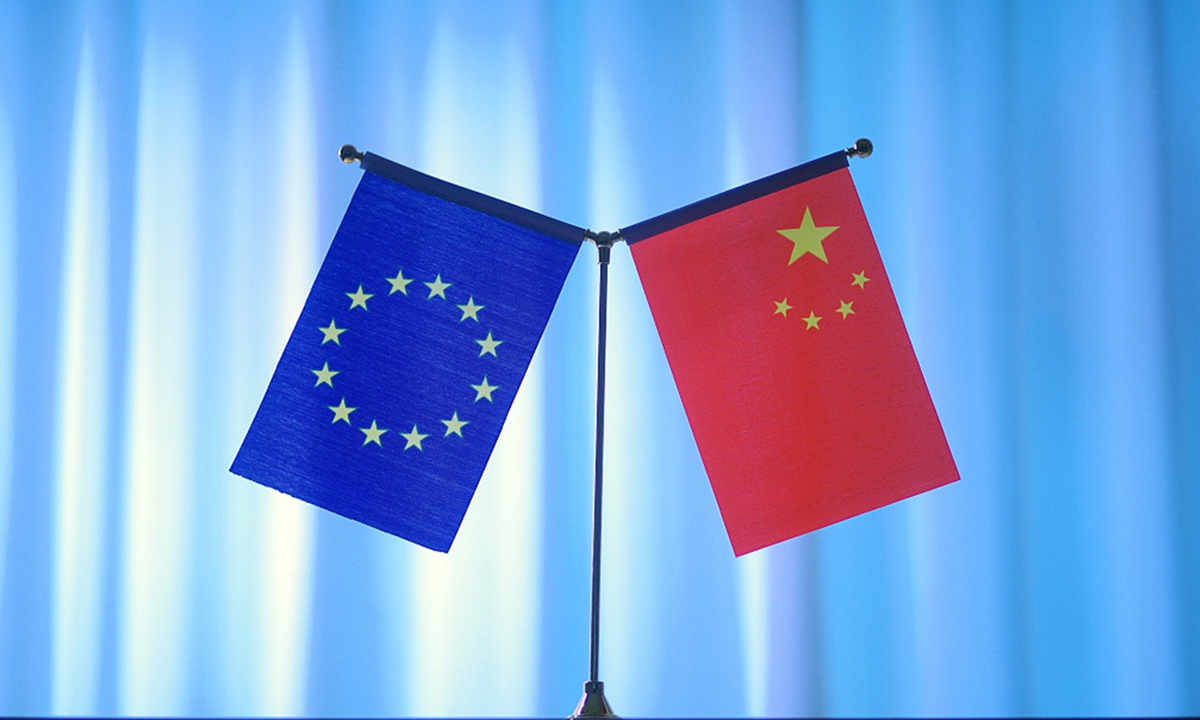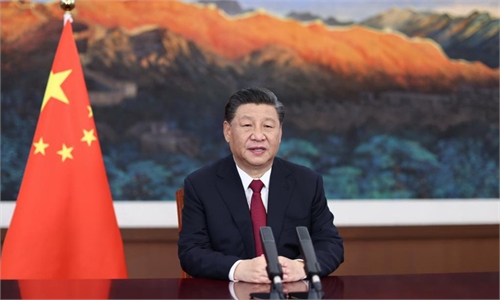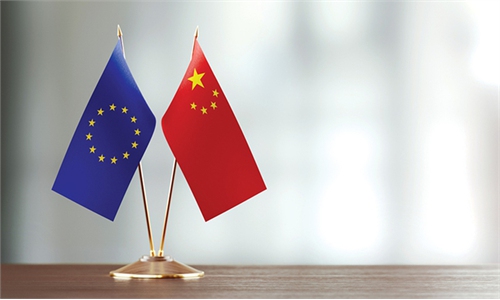
China EU. Photo: VCG
Major EU members and China jointly participated in the Global Health Summit of the G20 on Friday, just one day after the EU parliament froze the ratification of the China-EU investment deal, called a major "deterioration" of China-EU relations by some Western media.
Chinese observers believe it shows that the governments of EU member states have clearly seen that practical cooperation with China is what conforms to the interests of Europe, as the two sides share a greater consensus on multilateralism and jointly tackling world challenges, including public health issues, despite political differences.
More institutions and governments in the EU will eventually realize that using so-called human rights issues to disrupt cooperation with China in fields such as investment and trade will make the EU "fall into the trap" of the US, which has been luring Europe to contain China, and may put the bloc's true interests at stake, Chinese observers said, noting the EU is likely to adjust its relations with China later this year.
The EU cannot have a real economic recovery without China, and COVID-19 cooperation cannot happen without China either, analysts said.
As of press time, the White House has not announced whether US President Joe Biden would attend the summit.
The summit, which takes place in Rome at Villa Pamphilj, is a special event of the Group of 20 (G20) presidency, organized by Italy in partnership with the European Commission.
President Xi Jinping, invited by Mario Draghi, prime minister of Italy, and European Commission President Ursula von der Leyen, is scheduled to attend the summit and deliver a speech via video from Beijing on Friday.
The key outcome of the meeting will be a "Rome Declaration" of principles, which will be a powerful guide for further multilateral cooperation and joint action to prevent future global health crises, and for a joint commitment to build a healthier, safer, fairer and more sustainable world, according to its website.
The summit is one of the many multilateral fields where China and Europe are closely collaborating, and the two sides also have enormous cooperative space in climate change, safeguarding regional and global security, as well as preventing the proliferation of nuclear weapons.
The meeting reflects the greater consensus of the two on upholding multilateralism, international order and system and jointly tackling global challenges, Cui Hongjian, director of the Department of European Studies at the China Institute of International Studies, told the Global Times on Friday.
Besides jointly supporting vaccine accessibility and affordability for developing countries, the two sides may work to accelerate the global economic recovery by collaborating on research of mutual recognition of vaccines and the resume of some supply chains, Cui said.
The two sides may also vow to support the World Health Organization as the most professional institution on public health, Cui said.
But Cui urged the two to avoid politicizing health and bringing geopolitical factors into multilateral cooperation scenarios.
Just one day ahead of the summit, European parliament froze the China-EU Comprehensive Agreement on Investment (CAI) on Thursday citing China's countermeasures against the EU over Xinjiang-related issues, putting a halt to the ratification of the deal.
Chinese observers said the freeze was just an "emotional expression" of some people in the EU and will not affect bilateral ties.
Some people in the EU fear excessive reliance on China given China's growing strength, and some felt uncomfortable about China's countermeasures to the EU's moves over Xinjiang, and the EU also wanted to make a gesture to please the US, Wang Yiwei, director of the Institute of European Studies at Renmin University of China, told the Global Times.
The European parliament cares only about values, but governments of EU members care more about people's livelihoods and their economies, and they know cooperation with China in realistic areas is in line with the interests of Europe, Cui said, adding "after all, you cannot feed people with human rights."
China and the EU have engaged more at a multilateral level this year including on climate change and biodiversity despite bilateral political differences, which showed that China and the EU share more common ground than differences and they need more cooperation than competition, observers said.
Wang said that it takes time for Europe as a whole to realize that China as a partner in various fields cannot be replaced and letting political differences infiltrate the economic sector will put Europe's true interests in danger. The EU will eventually figure that out, "probably in the second half of this year especially after several multilateral meetings including the UN Biodiversity Conference in Kunming in October."




